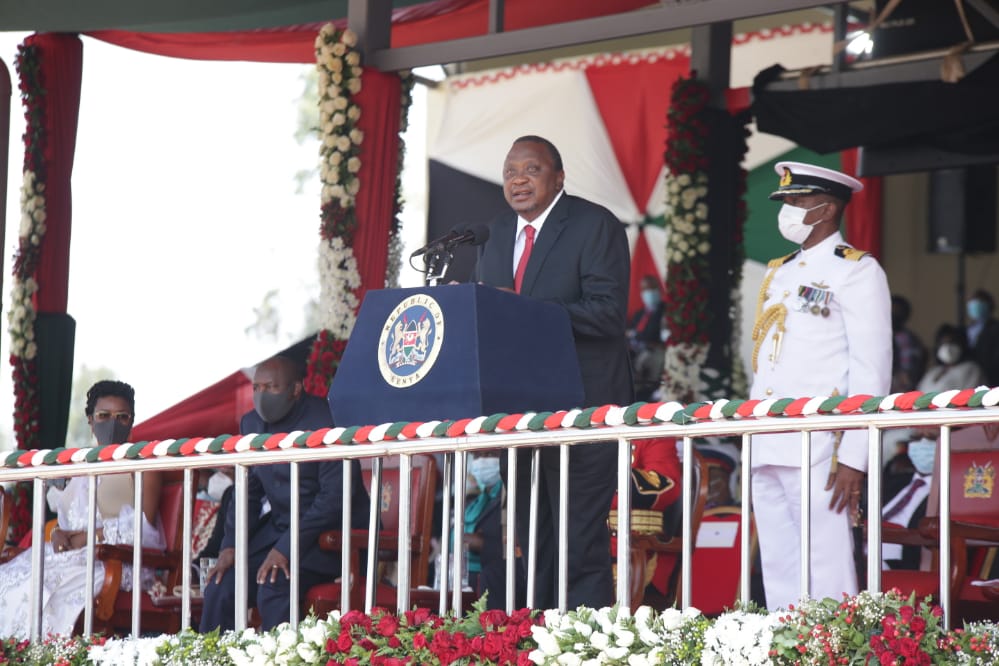What’s wrong with Uhuru expressing optimism in BBI fate?
By People Daily, June 4, 2021Joseph Mutua Ndonga
In his Tuesday address to the nation during Madaraka Day celebrations at the Jomo Kenyatta International Stadium in Kisumu, President Uhuru Kenyatta made what has become unpopular remarks about the recent court ruling on the fate of the Building Bridges Initiative and the likely consequences of the same.
Many people have interpreted the remarks to mean threats to judicial officers, contempt of court, attempts to impose the BBI agenda on citizens through hook or crook or interference on the independence of the Judiciary.
Just like the president had his opinion, everyone is entitled to theirs on the matter or in response to the president’s.
However, the harsh reaction that has characterised the response to the president’s remarks are skewed, misconstrued and out of context.
Uhuru, who opened up for the first since the five-member bench stopped the BBI process, argued that the High Court judges should have asked a couple of questions to inform their verdict.
He listed three of them as: Will the decision help to reaffirm the sovereign will of the people?
If not, who will continue to carry the burden of toxic politics engulfing our nation every election cycle? Will it improve or hinder the growth of the devolution?
It should be noted the Judiciary, just like other arms of government, exercises powers donated to it by the people. In a democracy that, therefore, means the citizens are supreme.
The 2010 Constitution has enhanced the independence of judicial officers. And if, 10 years later, they would come to the realisation ‘Power corrupts, and absolute power corrupts absolutely’, then Kenyans were entitled to amend the provisions in contention.
BBI offers a roadmap on how this matter can be sorted out — the creation of the office of the Judiciary Ombudsman.
Before Chief Justice David Maraga left office, he had faulted this proposal, perhaps for fear the office could expose the soft underbelly of judicial officers and bring rogue ones to book.
One wonders if the same fears could have informed the bench’s decision to slam brakes on BBI.
Truth be told: Checks and balances are critical aspects of good governance and which all arms of government are supposed to embrace, all the times.
The intention of Kenyans who submitted views and memoranda to the BBI taskforce was not to create an institution that will usurp the powers of Judiciary: The idea was informed by the fact that judges are not supernatural and hence need a prefect.
Remember, cases of judicial officers linked to claims of soliciting bribes to offer services are not uncommon in this country. Kenyans thought the Ombudsman would take tangible actions against such officials.
Well, Uhuru’s remarks did not amount to contempt of the courts, as claimed in some quarters.
He commended on a concluded case and the remarks weren’t aimed at influencing the ongoing case at the Court of Appeal.
The remarks only happened to be unpopular with some individuals by disagreeing with those claiming the BBI dream is dead.
The president, in my opinion, only sought to renew hopes of discouraged BBI promoters and proponents following the court ruling and subsequent comments by the so-called legal experts that the Appeals court could uphold the decision of the High Court.
What’s wrong with him expressing optimism on the fate of the BBI process?
And for the record, in the same speech, the president reiterated his commitment to respect, defend and uphold the rule of law. — The writer is social commentator and blogger based in Nairobi
